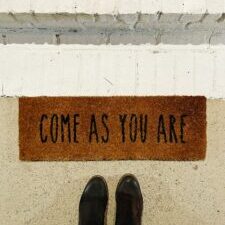October is Depression and Mental Health Screening Month. Older adults tend to be shown in pop culture as being sad because they feel isolated or are suffering with loss. It’s important to distinguish between sadness and clinical depression.

According to a 2017 report by the World Health Organization, depression affects 7% of older adults internationally; ¼ of deaths from self-harm were over age 60. Depression is often seen as just another part of aging, but it’s not.
Risk Factors
- Retirement
- Loss of loved ones
- Worsening health
- Isolation
Depression Signs in Older Adults (this is not an exhaustive list!)
- Change in appetite (either overeating or eating much less)
- Feelings of hopelessness
- No longer interested in hobbies they once enjoyed
- Decrease in energy
- Change in sleep patterns (either sleeping too much or not enough)
- Trouble concentrating or remembering
- Aches/pains that don’t get better, even after seeing a doctor
Getting Help
- Talk to your doctor if you think you might have depression
- Talk to your doctor about the possibility of antidepressants
- Look for depression screenings in your community
- If your insurance allows, start seeing a therapist (a good place to start is Psychology Today’s “find a therapist” page on their website)
Visit the Ahead of the Curve Senior Resource Directory to find mental health resources near you. Click here to learn more about Catholic Charities Washtenaw County’s behavioral health programs.






